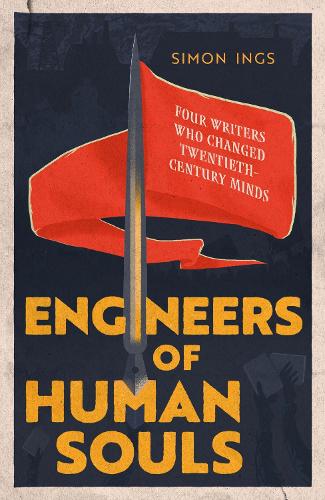
Engineers of Human Souls: Four Writers Who Turned to Politics
(Paperback)
Available Formats
Hardback
Published: 13th August 2024
Paperback
Published: 29th April 2025
Paperback
Published: 30th January 2024
Publishing Details
Engineers of Human Souls: Four Writers Who Turned to Politics
By (Author) Simon Ings
Little, Brown Book Group
Little, Brown
30th January 2024
United Kingdom
Classifications
General
Non Fiction
Biography: historical, political and military
Literary studies: fiction, novelists and prose writers
909.82
Physical Properties
Paperback
368
Width 152mm, Height 232mm, Spine 30mm
479g
Description
Four writers. Four dictators. One world, changed out of all recognition. ENGINEERS OF HUMAN SOULS is an intimate and shocking shadow history of creative vanity in a time that turned writers - once the faithful servants of authority - into figures of political consequence.
Gabriele D'Annunzio, whose poetry became a blueprint for fascism in Italy. Maxim Gorky, dramatist of the working class and Stalin's cheerleader. Joseph Goebbels, a hopeless novelist but, under Hitler, an inspired propagandist. Ding Ling whose every story served the Maoist regime that kept her imprisoned for years.Not one of them was suited to vast undertakings. D'Annunzio couldn't amass the small change necessary for postage stamps, but took over a city. Gorky, a stranger to tact, tried to outmanoeuvre Stalin. Goebbels couldn't keep his own wife faithful, but managed to persuade children to fight and die in the Reich's hopeless last stand. Ding Ling survived Mao's cultural revolution mostly by refusing to believe that it applied to her.All four nursed extravagant visions of the future, and believed they were vital to its realisation. Each was lured to the centre of political action. Each established a dangerous and damaging relationship with a notorious dictator. And when writers and rulers find a use for each other, the consequences can be shattering for us all.Author Bio
Simon Ings is the author of eight novels and two works of non-fiction, including the Baillie Gifford longlisted Stalin and the Scientists. He co-founded and edited Arc magazine, a digital publication about the future, before joining New Scientist magazine as its arts editor. He writes a monthly science-fiction column and reviews for The Times, in addition to reviews for the Financial Times, Telegraph, The Spectator and others.
